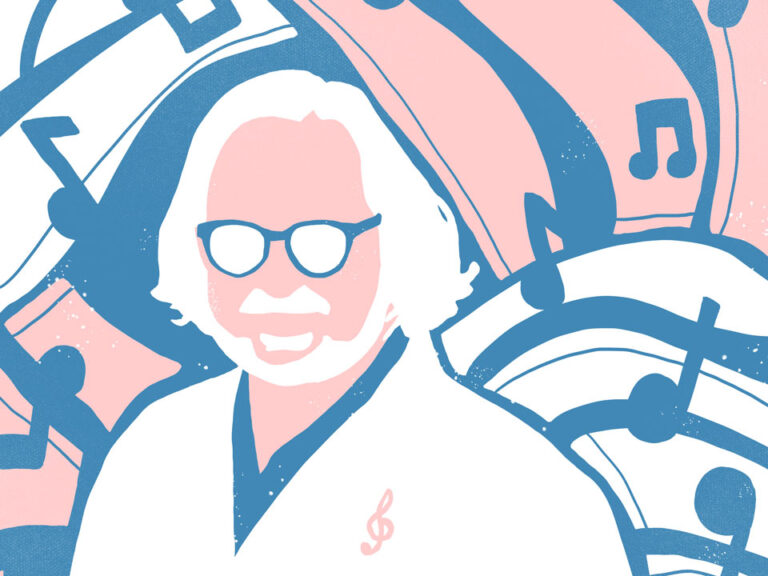John Mark Cleland died peacefully on Feb. 7, 2022, in Indianapolis.
Some people reading this headline will have little or no idea who John Cleland was. However, if you are a medical or urological oncologist, you should. John Cleland was the first man whose metastatic testicular cancer was cured with combination chemotherapy containing cisplatin.
His survival, 47 years ago, which occurred soon after the breakthrough reports of impressive cure rates of certain leukemias and Hodgkins and non-Hodgkins lymphomas, ushered in an age of great excitement in the treatment of cancer.
John was our patient (L.E.) and good friend (D.F.H.) over the last five decades. He walked every step of the way with the burgeoning oncology faculty and staff at Indiana University (IU), led by L.E., during the early halcyon days as they pioneered the bleomycin, vinblastgine, cisplatin (PVB) regimen that was ultimately shown to cure 60% of men with his condition (with more modern strategies, the rate is 80%).
John first had a retroperitoneal lymph node dissection in 1973 performed by Dr. John Donahue at IU. Because of the large number of positive lymph nodes, he received adjuvant mithramycin (noted by L.E. to be “not my most brilliant idea”).


Photos courtesy of Indiana University Simon Cancer Center
When he relapsed with pulmonary metastases, he received the then standard chemo of actinomycin D. After a brief response, he enrolled in the first ever testis clinical trial with adriamycin + bleomycin + vincristine. Sadly, although completely asymptomatic, he experienced a relapse with increasing size and number of pulmonary metastases.
It took amazing courage and the desire to help others when he enrolled on the PVB phase II trial. This was before the introduction of effective antiemetics, and after day one of each of the four, five-day courses, he experienced horrible nausea and vomiting.
Independent of being a patient, John was a social friend of D.F.H. Our wives worked together at an engineering firm in Indianapolis, and because we shared a mutual interest in sports in general (we had graduated from rival schools: he from Purdue, and D.F.H. from IU), and in particular running, we bonded quickly.
John, being a graduate of Purdue, worked for a bovine artificial insemination firm, Genetic Plus, for five years, and he ordered running hats for both us emblazoned with GPTC (Genetics Plus Track Club), of which we were the only two members! I recall his telling me that he “had had cancer, but it looks I’m cured.”
Little did I know that I would later be assigned to the oncology ward at IU Hospital as a third-year medical student in 1977, and that my attending physician would be none other than L.E. Influenced by both Dr. Einhorn’s legendary enthusiasm and John’s inspiring story, I readily committed to being an oncologist.


At the 50th anniversary celebration of the discovery of cisplatin by Dr. Barnett Rosenberg at Michigan State University, John told two apocryphal stories.
The first involved his original decision to become L.E.’s initial patient on the cisplatin phase II trial at IU, when L.E. informed him that he had few if any remaining options, but that cisplatin had looked active in phase I trials, and the phase II had just opened.
John was told that this therapy was promising but very toxic, and as 4th line therapy it was unknown if it could prolong his survival. His response was, “Well, if by participating in this clinical trial, even if it does not help me, perhaps it can help others.”
John returned home that evening to discuss participation versus just entering hospice, when his wife Judy remarked, “John, what do you have to lose?” and he proceeded to enter the trial.
The second story occurred roughly one week after his first cycle of PVB. He was admitted to the hospital with fever, neutropenia, and intractable nausea and vomiting. The next morning L.E. came into his room and said “John, I’ve got bad news and good news. You’ve got a terrible infection, so we’re going to treat it with antibiotics.”
John recalls thinking, “So, there’s good news?” L.E. then pulled chest X-rays (these were the days before CT, MRI, or PET scans) from one week prior and the night before out of their sleeves—showing almost complete resolution of the pulmonary metastases.


The rest is, truly, history. John and Judy subsequently had three wonderful children, he left GP to become a school teacher and coached cross country and track and field in the Indianapolis area for nearly 40 years, and, as remarkable as these accomplishments are, he also ran several marathons in spite of a baseline creatinine over 2 from the cisplatin and reduced pulmonary function from the bleomycin.
Nonetheless, as he told D.F.H. a few days before his passing, “Dan, I’ve lived 48 years longer than I ever thought possible. I’ve got no regrets.”
As he told D.F.H. a few days before his passing, ‘Dan, I’ve lived 48 years longer than I ever thought possible. I’ve got no regrets.’
John Cleland
Agriculture, especially animal sciences, were key factors in John’s life. While attending Purdue, he was a member of the dairy judging team. In 2014, he was awarded the Department of Animal Sciences Distinguished Alumni Award. After retiring from teaching, he authored a book on the history of the Purdue Creamery. John was a 50-year collector of milk bottles, and, during the Indiana State Fair, he relished playing the role of the milkman at Pioneer Village.
In 1980, he received Indiana Senator Richard Lugar’s Fitness Festival Comeback of the Year Award. In 2002, he was a torchbearer for the Winter Olympics and later was the first recipient of the IU Cancer Center Torchbearer Award. In 2004, he was awarded the Sagamore of the Wabash Award, the highest honor bestowed by the governor of Indiana on one of its citizens. These are all illustrations of what we hope we can provide to every patient with a diagnosis of cancer.
John is survived by his loving wife of 48 years, Judy Cleland, and children, Christopher (Jessica) Cleland, Brice (Alyssa) Cleland, and Cecilia (Daniel) Cahall; grandchildren Ezekiel, Naomi, Cora, Titus, Evadean, Vera, and Bridie; brother Larry (Judy) Murfitt; and sister Linda (Lynn) Morris.
He was a great man, in his humble way, and a great inspiration to all of us, both those of us who knew and loved him and for our field in general. We will miss him dearly.
Postscripts:
John Cleland is very important to the history of testis cancer. Entering first-year fellows at Indiana need to know the sacrifices John made and the type of person he was.
Most cancer centers have some funding through an endowed fellowship provided by a wealthy donor, who is largely unknown by fellows.
Thus, to give the trainees a full understanding and appreciation of John’s dedication to both scientific advancements in our field and to education (to which he devoted his entire career), Indiana University is creating the John Cleland Testis Cancer fellowship. This will guarantee that his remarkable story will be enshrined in the history of the development of the cure for testicular cancer.
A gift can be mailed to Indiana University Comprehensive Cancer Center, c/o I.U. Foundation, P.O. Box 7072, Indianapolis, IN 46207 with designation “John Cleland Fellowship Fund”, or online here.
If you have any questions about supporting this fund, please contact Amber Senseny at 317-278-4510 or akleopfe@iu.edu
Mr. Cleland and Dr. Einhorn participated in the Journal of Clinical Oncology Cancer Stories podcast series regarding “Pioneers in Oncology.” Their interview can be accessed here.










